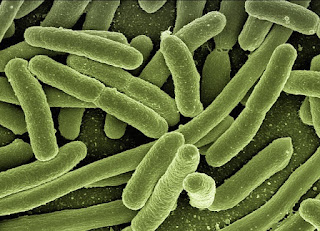What is capsaicin?
Capsaicin is the compound responsible for the heat in hot peppers. From jalapenos to habaneros, the burning sensation you experience when you bite into these peppers is all thanks to capsaicin. But this potent compound does more than just add a spicy kick to your food. It also interacts with your body in some intriguing ways, and one of these ways may involve your blood pressure.
Hot Peppers and Blood Pressure
So, where do hot peppers come in? Some people might believe that the heat from spicy hot peppers could potentially raise your blood pressure. After all, they can make you sweat and increase your heart rate, which are often associated with higher blood pressure. However, the relationship between hot peppers and blood pressure isn't that straightforward.
While the research is ongoing, certain studies suggest capsaicin could promote the widening of blood vessels, thereby reducing blood pressure. One way this may work is through the stimulation of TRPV1, a receptor found throughout the body, including in the cardiovascular system. When capsaicin binds to TRPV1, it could lead to increased production of nitric oxide, a molecule known to relax blood vessels and improve blood flow.
In animal studies, capsaicin has shown potential for lowering blood pressure. For instance, a research study published in the journal 'Cell Metabolism' found that long-term dietary consumption of capsaicin helped reduce blood pressure in hypertensive rats.
Moreover, epidemiological studies have observed a lower prevalence of hypertension in populations that consume a lot of spicy foods. For example, Chinese populations, where diets are traditionally rich in spicy foods, tend to have lower rates of hypertension. However, this is an association and does not necessarily imply a direct cause-and-effect relationship.
While these studies provide promising evidence, it's important to note that most research on capsaicin's blood pressure-lowering effects has been conducted in animals or in vitro. More extensive human studies are needed to fully understand the potential benefits and drawbacks of capsaicin consumption for blood pressure control.
Hot Sauce, Crushed Red Pepper, and Capsaicin
Just as eating chili peppers can provide you with capsaicin, so too can consuming hot sauce or crushed red pepper. Both of these condiments are made from chili peppers and therefore contain capsaicin. However, they also contain other ingredients, such as vinegar, salt, or additional spices, which can affect their overall nutritional value.
While adding hot sauce or crushed red pepper to your meals can be an easy way to increase your capsaicin intake, be mindful of the portion size and the additional ingredients to avoid excess sodium or other potentially harmful substances.
A Closer Look: Capsaicin, Weight Management, and Blood Pressure
Understanding the complex relationship between capsaicin, weight management, and blood pressure requires a deep dive into the roles these elements play in our overall health. Let's break it down.
Capsaicin and Weight Management
One of the most interesting properties of capsaicin is its potential role in weight management. Research has indicated that capsaicin can potentially enhance energy expenditure and fat oxidation, both of which are crucial in maintaining a healthy weight.When we consume capsaicin, it can stimulate a process known as thermogenesis. Thermogenesis is the process of heat production in organisms, and it's one of the ways our bodies burn calories. By increasing thermogenesis, capsaicin can potentially help boost our metabolism, which can lead to increased calorie burning and potentially aid in weight loss.
Moreover, some studies suggest that capsaicin may help suppress appetite, leading to a reduction in calorie intake. This could further contribute to its potential weight management benefits.
The Link Between Weight and Blood Pressure
Obesity and overweight are well-known risk factors for high blood pressure. When a person carries excess weight, it requires more effort for the heart to pump blood, which increases pressure on the artery walls and leads to higher blood pressure.In addition, obesity is often associated with insulin resistance, a condition that can lead to type 2 diabetes and hypertension. Excess fat, especially around the waist, is linked to increased production of hormones and cytokines that can raise blood pressure.
Therefore, maintaining a healthy weight is key for blood pressure control. Strategies that help with weight management, like a balanced diet and regular exercise, can also help keep blood pressure in check.
Capsaicin and Satiety
Another aspect of weight management where capsaicin might play a role is satiety, or the feeling of fullness after eating. Some research suggests that capsaicin can affect satiety signals in the brain, potentially leading to reduced calorie intake. By helping to control appetite, capsaicin could assist in maintaining a calorie deficit, which is essential for weight loss.
Capsaicin and Gut Health
Emerging research also suggests that capsaicin might influence gut health, which plays a pivotal role in weight management. Studies indicate that capsaicin can affect the gut microbiota, the community of microorganisms living in our intestines. An imbalance in gut microbiota has been linked with obesity and metabolic disorders, suggesting that capsaicin's potential effects on gut health could also contribute to its weight management benefits.






